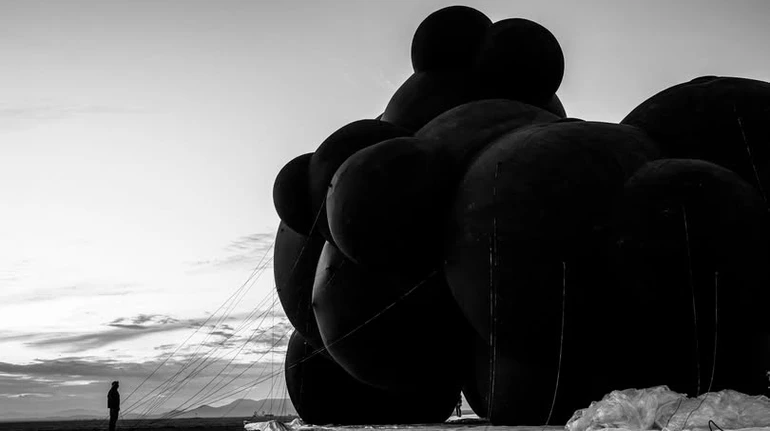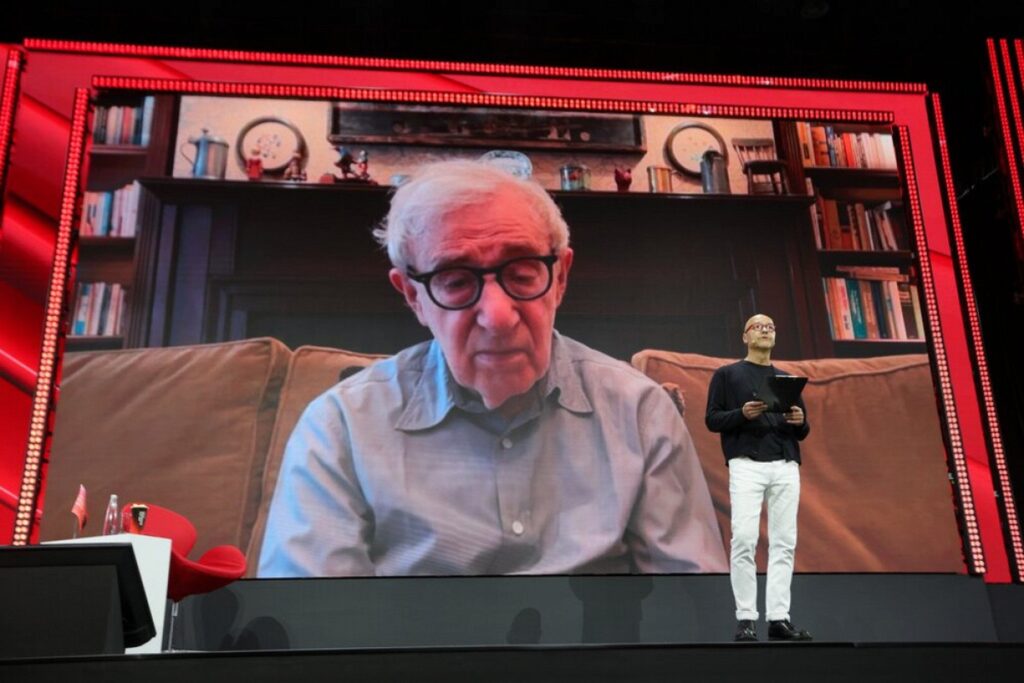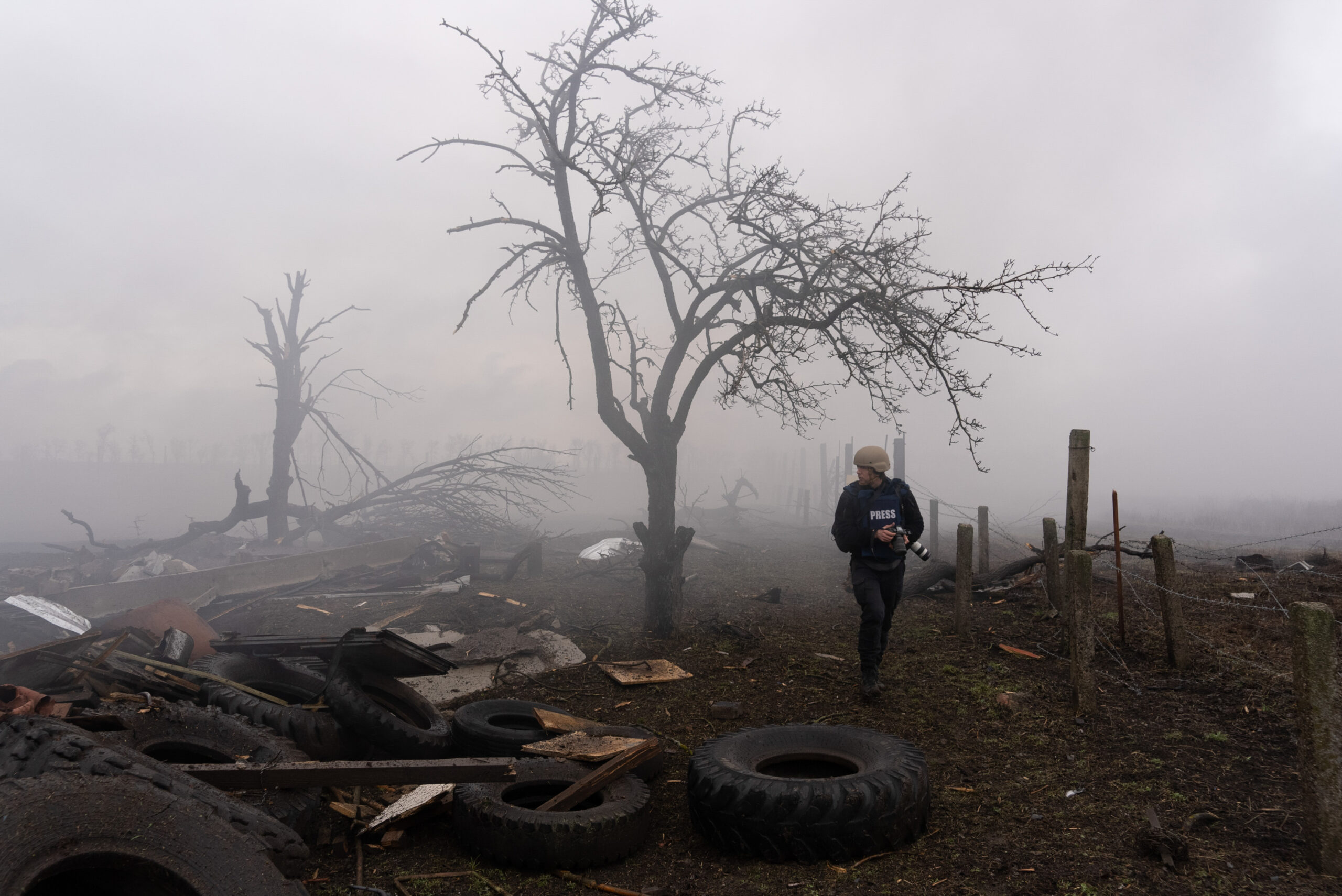Storm destroys Ukrainian installation “Black Cloud” at the US Burning Man festival

A powerful windstorm destroyed the Ukrainian art installation “Black Cloud” at the annual Burning Man festival in the United States, just hours after its completion.
The 7-ton, 30-meter-long structure, designed as a visualization of the threat of a coming world war, stood for less than a day.
“Today was the first and last day of ‘Black Cloud,'” wrote the installation’s producer and volunteer Vitaliy Deynega on social media.
The Ukrainian team spent the entire night assembling the installation. After 11 hours of work, they completed the structure and began receiving initial reactions, which Deynega described as “more than inspiring.”
“I was confident in the success of this work from the very beginning. And I wasn’t wrong: people came from all corners of the desert to see one of the largest and strangest objects that grew overnight,” Deynega said. “The installation definitely didn’t leave anyone indifferent. This was supposed to be a success no less than our last year’s work – I’m Fine. But then came the apocalypse.”
According to Deynega, a sudden powerful wind arose after 5:30 PM the same day, completely destroying the installation. Despite calculations showing the structure should have withstood such weather conditions, the storm proved too powerful.
“Despite the fact that on paper and according to calculations it should have withstood even such a storm, it turned out differently. It held the wind for the first 15 minutes, and then it was torn in the middle, the storm flew inside and destroyed it completely,” the producer explained.
Deynega drew parallels between the installation’s destruction and his personal experience of war, stating: “The last time I had such a feeling was exactly three and a half years ago, when I woke up to the first explosions and sirens and realized that external circumstances of insurmountable force decided to make adjustments to life.”
The installation was scheduled to remain at the festival for nine days. The destruction also affected planned European tour dates, with locations and dates already confirmed, according to the producer.
The “Black Cloud” installation was first presented in Kyiv at the square near St. Sophia’s Cathedral. Ukrainian artist Oleksiy Say created the construction, which weighed seven tons and measured 30 meters in length.
In comments to Ukrainska Pravda Culture project creators explained that the installation aimed to communicate with the outside world about the coming world war, which the artist believes has already begun.
“Unfortunately, I am convinced: war in the world will only grow. There are many reasons for this – from unresolved global problems to the latest technologies that every country seeks to use to solve its own long-standing ambitions,” Deynega said. “And if, or rather when, a new wave of wars begins – Black Cloud can become a cult work that is ahead of its time.”

